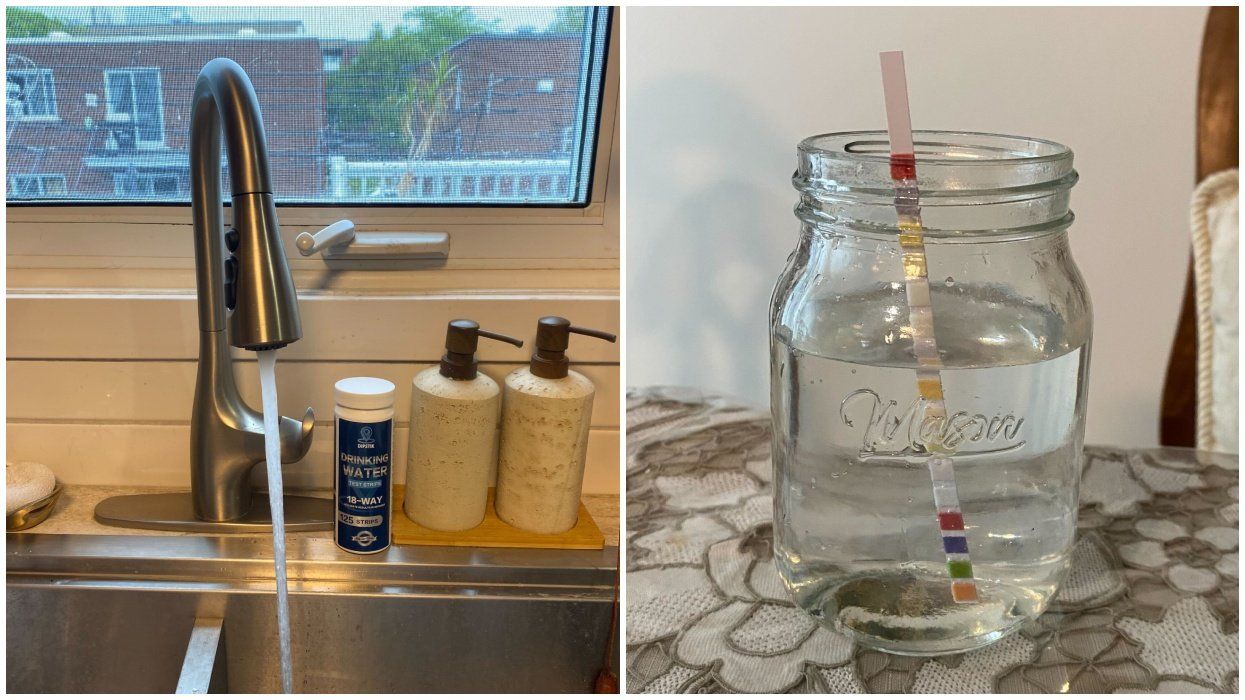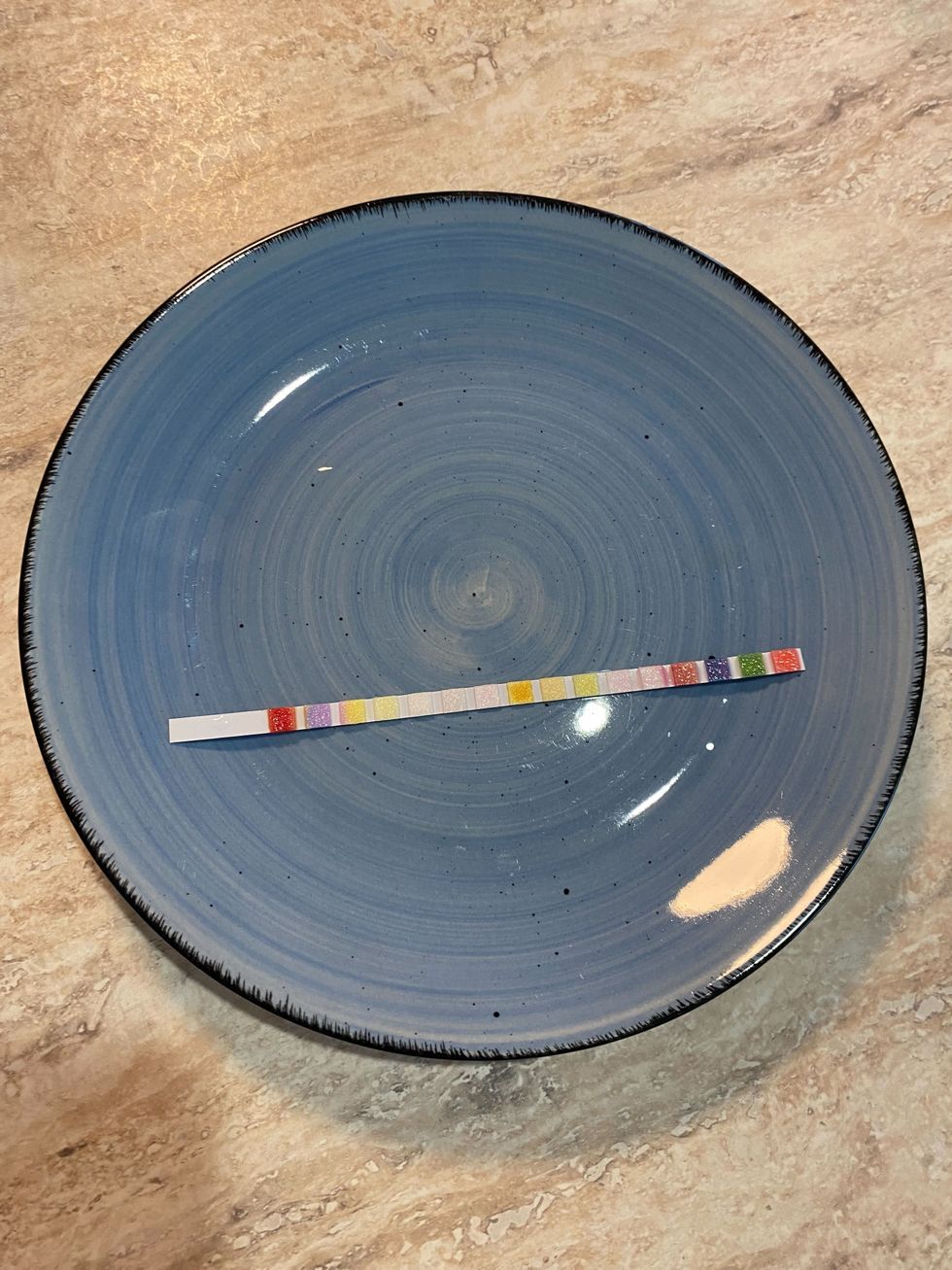I tested my Montreal apartment's tap water to see if it's really safe to drink
What's swimming in the city's water supply?

I picked up an 18-in-1 water testing kit and ran it through a glass of water straight from my kitchen sink.
Do you trust Montreal tap water, or is there still a part of you that wonders what's really in it?
I've never really been a tap water person. In my kitchen, the fridge's built-in filter has always been my safety net, and I refill my bottle straight from it without thinking. It's not that Montreal's water tastes bad, but I've always had this lingering doubt about what else might be swimming in it.
A lot of that comes from boil water advisories and headlines I've seen over the years, like W5's 2023 report warning Canadians about aging asbestos-cement pipes that could be shedding fibres into our water supply. When you read "Canadians should be very concerned about their drinking water" in big bold letters, it tends to stick with you.
So, even though the city says our tap water is "excellent," I've kept my distance. But lately, I started wondering if I was just being paranoid. Was my fridge filter really making a difference? Was I avoiding something that was perfectly fine? There was only one way to find out — I decided to test it myself.
I recently picked up an 18-in-1 water testing kit and ran it through a glass of water straight from my kitchen sink. The results surprised me, and honestly, they might change how I drink water at home.

Here's how my kitchen sink's H2O scored:
Next up was total hardness, which came in at 250 parts per million. That technically puts Montreal tap water in the "hard" category, meaning it has a higher mineral content — mostly calcium and magnesium. It doesn't make it unsafe, but it can affect taste, leave spots on dishes, and contribute to scale buildup in appliances over time.
Everything else, however, was either undetectable or exactly where it should be. Zinc, iron, copper, lead, mercury, manganese, nitrate, nitrite, and sulphate were all at 0. Free and total chlorine? 0. Even the quaternary ammonium compounds (QAC and QUAT) that can show up from cleaning products were completely absent.
The only test strip that raised an eyebrow was fluoride. The kit doesn't give an exact number, but it placed my water somewhere between 0 and 4 milligrams per litre. While I would prefer to not have any, according to Health Canada, the target for fluoride in drinking water is about 0.7 mg/L, and the maximum acceptable concentration is 1.5 mg/L. So while my result is still within the safe zone, the range was wide enough to make me want a more precise reading if I really wanted certainty.
The verdict? Montreal tap water (at least in my building) is safe to drink by all the major standards. The city's own testing backs that up, with thousands of samples taken every year to monitor microbiological, chemical, and physical quality.
So will I finally ditch the fridge filter? Probably not. Old habits die hard, and the extra layer of filtration still gives me peace of mind, even if it may not be doing much.
- Quebec's highest-paying job fields for 2025 were just revealed and #1 isn't medicine or law ›
- Canadians revealed which discontinued Tim Hortons menu items they wish would come back ›
- Quebec's September weather forecast is here and it's got a little bit of everything - MTL Blog ›
- Rent is dropping across Canada but Montreal apartments just got more expensive - MTL Blog ›
- I tested my filtered fridge water against Montreal tap water & the results surprised me - MTL Blog ›
